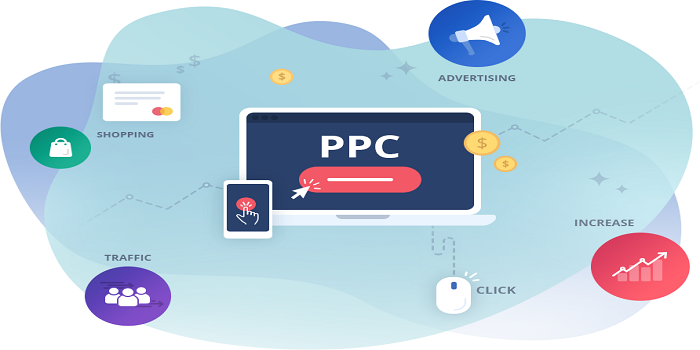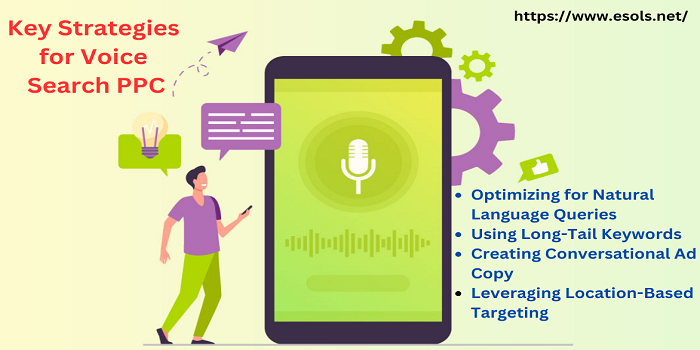In today’s digital landscape, the way users interact with technology is evolving rapidly. And voice search is at the forefront of this transformation. As more consumers embrace voice-activated assistants like Siri, Alexa, and Google Assistant, businesses must adapt their advertising strategies. Help to leverage the power of voice search Pay-Per-Click (PPC) advertising.
Table of contents
Understanding Voice Search Trends
The Rise of Voice Search
Voice search has witnessed exponential growth in recent years. With an increasing number of users relying on voice commands to perform various tasks. Including searching for information, making purchases, and accessing services.

Current State of Voice Search Technology
Advancements in artificial intelligence and natural language processing have significantly improved. The accuracy and efficiency of voice recognition technology, making it more accessible and user-friendly than ever before.
Accurate Results
Moreover, as voice recognition technology becomes more accurate, users are gaining confidence in its capabilities. They are more willing to rely on voice search for a variety of tasks. Including information retrieval, shopping, and accessing services. This increased confidence leads to greater adoption of voice search technology.
Additionally, the proliferation of voice-enabled devices, such as smartphones. Smart speakers, and virtual assistants, has contributed to the rise of voice search
Benefits of Voice Search PPC

Voice search enhances the overall user experience by providing hands-free interaction. Faster results, and greater convenience, leading to higher levels of customer satisfaction and loyalty.
| Benefit | Explanation |
| Enhanced User Experience | Voice search offers hands-free interaction, allowing users to search without typing, enhancing accessibility and convenience. Users can multitask while searching, leading to a smoother experience. |
| Faster Results | Voice search typically provides quicker results compared to traditional typing, as it processes queries more rapidly, satisfying user intent promptly and reducing search time. |
| Greater Convenience | Users find voice search more convenient as it eliminates the need for manual typing, making it ideal for on-the-go or multitasking scenarios, thus enhancing user satisfaction. |
| Increased Customer Satisfaction | The seamless experience of voice search, combined with faster results and convenience, contributes to higher levels of customer satisfaction, leading to improved brand perception. |
| Improved Brand Loyalty | Satisfied users are more likely to return and engage with a brand repeatedly. By offering a user-friendly voice search experience, brands can foster long-term loyalty and advocacy. |
Key Strategies for Voice Search PPC

Optimizing for Natural Language Queries
Unlike text-based searches, voice queries tend to be more conversational and context-specific. Requiring advertisers to optimize their keywords and content accordingly to align with user intent.
Using Long-Tail Keywords
Long-tail keywords play a crucial role in voice search optimization, as they mimic the natural language patterns. Which is used in voice queries and are more likely to match user intents accurately.
Creating Conversational Ad Copy
Crafting ad copy that sounds natural and conversational is essential for engaging voice search users. And encouraging them to take action, whether it’s making a purchase or visiting a website
Leveraging Location-Based Targeting
Utilizing location-based targeting allows advertisers to deliver highly relevant and personalized ads. Which help users based on their geographical location, increasing the chances of driving foot traffic and conversions
Tools and Platforms for Voice Search PPC

Google Ads
Google Ads offers various features and tools designed specifically for voice search advertising. Including voice-activated ad extensions and voice search bid adjustments, enabling advertisers to optimize their campaigns for voice-enabled devices.
Amazon Alexa Skills
Businesses can leverage Amazon Alexa Skills to create interactive voice experiences for users. Such as voice-activated promotions, personalized recommendations, and seamless purchasing options, to enhance their brand presence and drive sales.
Microsoft Advertising
Microsoft Advertising provides advertisers with advanced targeting options and voice search insights to optimize their PPC campaigns. For voice-enabled devices, reaching users across multiple platforms and devices
Challenges and Solutions
Accuracy and Interpretation of Queries
One of the challenges of voice search PPC is ensuring the accuracy and interpretation of user queries, as voice recognition technology may misinterpret or misunderstand certain phrases. Advertisers can address this issue by optimizing their campaigns for natural language queries and using AI-powered tools to improve voice recognition accuracy
Limited Ad Space
Voice search results typically provide users with only one or two top results, limiting the visibility of paid ads. To overcome this challenge, advertisers should focus on optimizing their ad copy and bidding strategies to secure top positions in voice search results and maximize their visibility.
Privacy Concerns
Privacy concerns surrounding voice-activated devices and personal data collection may deter some users from engaging with voice search ads. Advertisers can alleviate these concerns by implementing transparent privacy policies, obtaining user consent for data collection, and prioritizing user privacy and security in their advertising practices.

Future Outlook and Predictions
As voice recognition technology continues to advance and consumer adoption of voice search grows, voice search PPC is poised to become an integral component of digital advertising strategies. Businesses that embrace and adapt to this emerging trend will gain a competitive edge and drive sustained growth in the digital marketplace.
Conclusion
Voice search PPC presents a unique opportunity for businesses to connect with consumers in a more personalized and interactive manner, driving engagement, conversions, and brand loyalty. By understanding the evolving landscape of voice search trends, implementing effective strategies, and leveraging innovative tools and platforms, advertisers can harness the power of voice search to achieve advertising success in the digital age.
Read More ; Voice Search PPC: Harnessing Emerging Trends for Advertising Success
FAQs
Voice search PPC refers to Pay-Per-Click advertising campaigns that are optimized for voice-activated search queries, allowing businesses to target and engage with users using voice-enabled devices.
Voice search PPC differs from traditional PPC in that it focuses on optimizing ads and keywords for natural language queries and voice-activated devices.
Some best practices for voice search PPC include optimizing for natural language queries, using long-tail keywords, creating conversational ad copy.
While voice search PPC can benefit a wide range of businesses, its effectiveness may vary depending on factors such as industry, target audience, and advertising goals.


